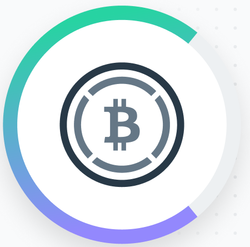
© Reuters. Kaspersky Warns Against NFT Scams Amid Qatar World Cup 2022
- Kaspersky, a cybersecurity firm, warns against scams amid Qatar World Cup 2022.
- The cyber security firm found that phishing sites employ tactics to extract user data.
- Scammers bet on matches with fake crypto awards or NFT artwork as a strategy.
According to Kaspersky, a multinational cybersecurity and privacy organization, several scammers and fraudsters are taking advantage of football fans’ excitement for the Qatar 2022 World Cup.
The cyber security firm discovered that the phishing site employed a variety of devious tactics to acquire user data. The first fraudulent scam they discovered was the sale of Qatar 2022 World Cup tickets, among other maneuvers.
Kaspersky’s cybersecurity expert, Olga Svistunova, in a press release received on Monday, shared the following:
We see how cybercriminals are trying to get the most out of the event and exploit as many as possible, including the increasing number of NFT scams related to the World Cup.
Accordingly, the possibility of ticket fraud for the Qatar 2022 World Cup increased because the event’s organizers sold tickets online. Secondly, awarding presents and prizes was the second fraud scheme discovered.
During this time, the scammers were discovered to be taking advantage of the popularity of NFTs and crypto assets to commit fraud in the name of the Qatar 2022 World Cup. Bets on event matches with crypto-currency awards or NFT digital artwork are employed as a strategy.
Victims are prompted to input crypto wallet information as well as reasons for reward transfers.
To avoid fraud disguised as the 2022 Qatar World Cup, internet users are urged to be cautious when visiting websites in cyberspace. Hover over the page URL to double-check that the site address is accurate.
Moreover, the security company Kaspersky warns that customers should not click on links in emails but instead put in site names, especially for financial services.
In addition, the World Cup scam involves selling commodities such as sports goods, in which con men obtain personal information from victims in exchange for fake soccer jerseys and footballs.
Similarly, the victims are sent a bogus message claiming to be the ticket winner and simply asking the target to pay the shipping fee.
According to Kaspersky’s security expert Olga Svistunova, “Major sports events always attract the attention of cybercriminals”, and she advised users to be attentive when receiving offers that seem too good to be true.
The post Kaspersky Warns Against NFT Scams Amid Qatar World Cup 2022 appeared first on Coin Edition.
See original on CoinEdition












































































Be the first to comment